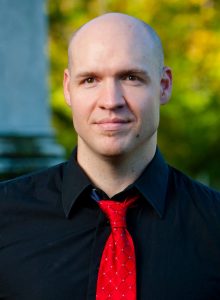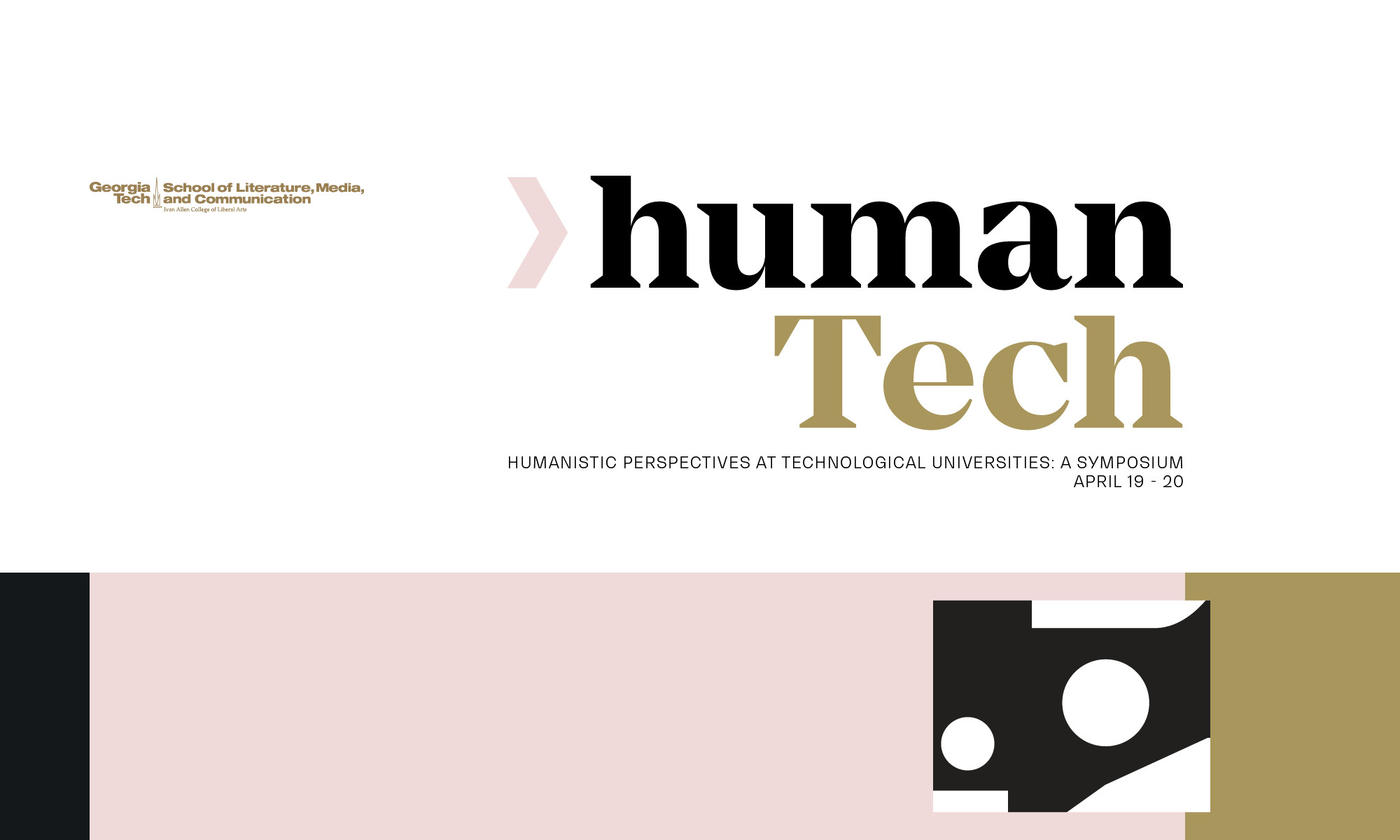School of Literature, Media, and Communication
Organizers
Richard Utz
 Dr. Richard Utz is Professor and Chair in Georgia Tech’s School of Literature, Media, and Communication. His scholarship centers on medieval culture, medievalism, the interconnections between humanistic inquiry and science/technology, reception study, and the formation of cultural memories and identities. His publications include Medievalism: A Manifesto, an essai advocating for a more co-disciplinary, inclusive, democratic, affective, and humanistic engagement with medieval culture, and Humanistic Perspectives in a Technological World, a collection that features how faculty in his School, in their research, teaching, and service, negotiate human-centered work at a top-ranked technological institute.
Dr. Richard Utz is Professor and Chair in Georgia Tech’s School of Literature, Media, and Communication. His scholarship centers on medieval culture, medievalism, the interconnections between humanistic inquiry and science/technology, reception study, and the formation of cultural memories and identities. His publications include Medievalism: A Manifesto, an essai advocating for a more co-disciplinary, inclusive, democratic, affective, and humanistic engagement with medieval culture, and Humanistic Perspectives in a Technological World, a collection that features how faculty in his School, in their research, teaching, and service, negotiate human-centered work at a top-ranked technological institute.
John Browning
 John Edgar Browning is Visiting Lecturer in the School of Literature, Media, and Communication at the Georgia Institute of Technology, where he has taught for the last 5 years. He has over a dozen contracted or published books and over 75 shorter works that cluster around Dracula, vampires, zombies, horror, monstrosity, Bram Stoker, and the Gothic. His works include Speaking of Monsters: A Teratological Anthology (Palgrave, 2012), The Forgotten Writings of Bram Stoker (Palgrave Macmillan, 2012), and Zombie Talk: Culture, History, Politics (Palgrave, 2015), as well as the forthcoming volumes Dracula-An Anthology: Critical Reviews and Reactions, 1897-1920 and The Edinburgh Companion to the Vampire, both from Edinburgh University Press, and New Queer Horror in Film and Television (Horror Studies) from University of Wales Press. He is also co-editing, with David J. Skal, the second Norton Critical Edition of Dracula (forthcoming).
John Edgar Browning is Visiting Lecturer in the School of Literature, Media, and Communication at the Georgia Institute of Technology, where he has taught for the last 5 years. He has over a dozen contracted or published books and over 75 shorter works that cluster around Dracula, vampires, zombies, horror, monstrosity, Bram Stoker, and the Gothic. His works include Speaking of Monsters: A Teratological Anthology (Palgrave, 2012), The Forgotten Writings of Bram Stoker (Palgrave Macmillan, 2012), and Zombie Talk: Culture, History, Politics (Palgrave, 2015), as well as the forthcoming volumes Dracula-An Anthology: Critical Reviews and Reactions, 1897-1920 and The Edinburgh Companion to the Vampire, both from Edinburgh University Press, and New Queer Horror in Film and Television (Horror Studies) from University of Wales Press. He is also co-editing, with David J. Skal, the second Norton Critical Edition of Dracula (forthcoming).
Karen Head
 Dr. Karen Head is the author of Disrupt This!: MOOCs and the Promises of Technology (a nonfiction book about issues in contemporary higher education), as well as five books of poetry (Lost on Purpose, Sassing, My Paris Year, Shadow Boxes and On Occasion: Four Poets, One Year). She has exhibited several acclaimed digital poetry projects, including her project “Monumental” (part of Antony Gormley’s One and Other Project) which was detailed in a TIME online mini-documentary. She serves as Editor of the international poetry journal Atlanta Review. On a more unusual note, she is currently the Poet Laureate of Waffle House—a title that reflects an outreach program to bring arts awareness to rural high schools in Georgia, which has been generously sponsored by the Waffle House Foundation. She is the Associate Chair in the School of Literature, Media, and Communication, where she also serves as the Executive Director of the Naugle Communication Center.
Dr. Karen Head is the author of Disrupt This!: MOOCs and the Promises of Technology (a nonfiction book about issues in contemporary higher education), as well as five books of poetry (Lost on Purpose, Sassing, My Paris Year, Shadow Boxes and On Occasion: Four Poets, One Year). She has exhibited several acclaimed digital poetry projects, including her project “Monumental” (part of Antony Gormley’s One and Other Project) which was detailed in a TIME online mini-documentary. She serves as Editor of the international poetry journal Atlanta Review. On a more unusual note, she is currently the Poet Laureate of Waffle House—a title that reflects an outreach program to bring arts awareness to rural high schools in Georgia, which has been generously sponsored by the Waffle House Foundation. She is the Associate Chair in the School of Literature, Media, and Communication, where she also serves as the Executive Director of the Naugle Communication Center.
